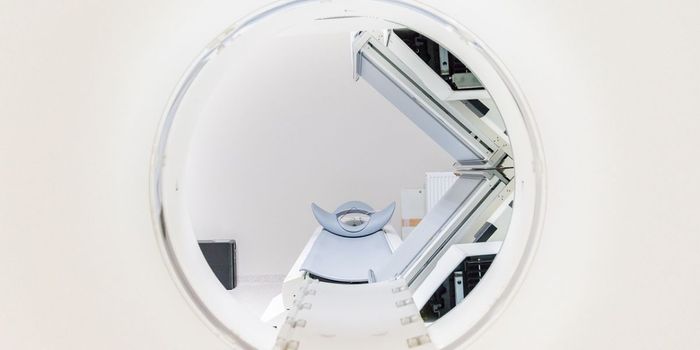Botox Can Relieve Depression & Anxiety, Now Researchers Know How
Botox, or botulinum toxin, might be most popularly known as a treatment for wrinkles; it's a neurotoxic agent produced by Clostridium botulinum bacteria, and works by causing a mild, local paralysis. Botox prevents a neurotransmitter called acetylcholine from being released by the ends of neurons, where they meet muscles to control movement. Botox is sometimes used to treat a variety of medical conditions that involve tension and muscle movement, such as migraine headaches, excessive sweating, and eye twitching. It also has mood altering effects and has been known to relieve anxiety, depression, and mood swings in those with borderline personality disorder.
Scientists have now learned more about how Botox affects the brain to alter mood. With magnetic resonance imaging (MRI), researchers imaged the brains of borderline personality patients who received Botox injections. This work has shown that Botox affects a region of the brain known as the amygdala, which is known to be an area where fearful emotions arise and get processed. The findings have been published in Scientific Reports.
When people feel tense or angry, two kinds of muscles contract in the lower middle forehead, in the part of the face called the glabellar region. Worry or frown lines can appear here. If Botox is injected into the glabellar region, the muscles there are instantly paralyzed. People's facial expressions and their emotions are intimately connected, so when the muscles in the face relax (because of the paralysis), the intensity of emotions also calms down.
"A relaxed forehead conveys a more positive feeling, so to speak," explained Professor Dr. Tillmann Krüger. Previous research by Krüger and colleagues has already shown that that glaballar region Botox injections can help relieve depression and anxiety.
The effect of Botox lasts for about three months, so injections used to treat mental illness would only have to be given at those intervals, noted Krüger, a senior physician and research group leader at the Hannover Medical School (MHH). Depressive symptoms can improve significantly with this approach. "The infrequent injections are also less costly than some other therapy options and have a very good tolerance and acceptance among patients," Krüger added.
This method is also an effective treatment for borderline personality disorder. Botox disrupts the feedback loop between the brain and muscles in the forehead, which alters emotions.
In a trial in which borderline patients were given Botox injections, their symptoms were significantly reduced within only four weeks, a change that was also reflected in MRIs. The control group, in which individuals were treated with acupuncture to relieve muscle tension in the face, also experienced some symptom relief, but there were no changes seen in their MRIs.
"We were able to see that botulinum toxin curbs the emotional constant fire in the tonsil nucleus, which accompanies the high-grade inner tension of the affected persons," explained Krüger.
Since the feedback look between the brain and muscles is not exclusive to the glabellar region, the researchers noted that anxiety disorders can also be alleviated with Botox injections to the upper and lower limb muscles, and neck muscles.
Botox is not yet recognized by insurance companies as a treatment for mental illnesses, however. The researchers are hopeful that more research will change that, and more people will be able to access this treatment.
Sources: Medizinische Hochschule Hannover, Scientific Reports









